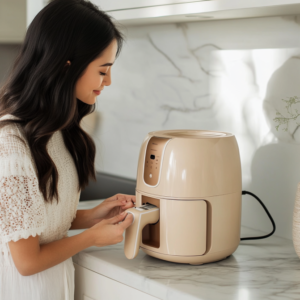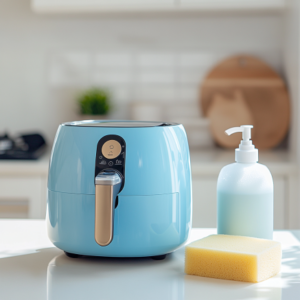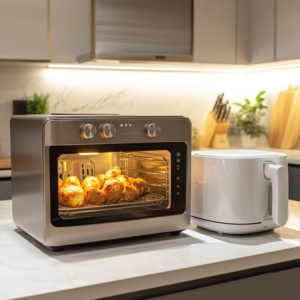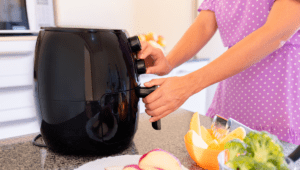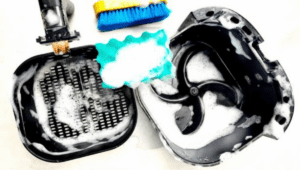Baking can be one of the most rewarding activities in the kitchen, but it’s easy to overlook the importance of taking care of your bakeware.
If you want to bake delicious cakes, cookies, and breads for years to come, learning how to maintain your bakeware correctly is essential.
By following a few simple steps, you can extend the life of your pans, sheets, and molds and ensure that your kitchen tools always perform at their best.
This article will explore some simple yet effective bakeware maintenance tips anyone can follow.
From keeping pans clean to preventing damage, these tips will help you get the most out of your bakeware and keep it in excellent condition.
Why Bakeware Maintenance Matters
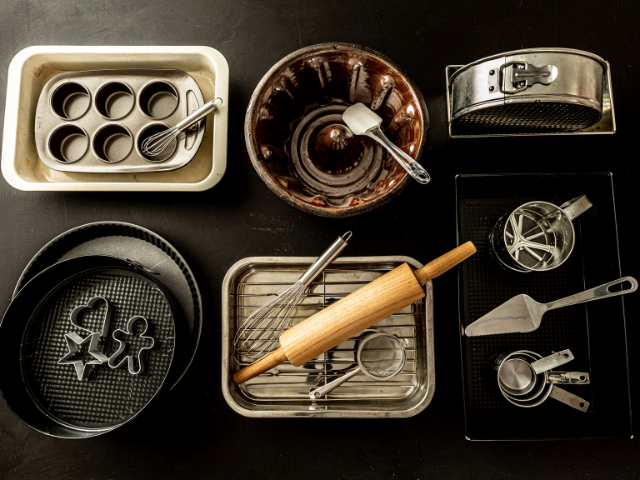
Proper care and maintenance are crucial to ensuring your bakeware lasts as long as possible. Regular cleaning, using the right tools, and adequate storage all prevent wear and tear. If you don’t take care of your bakeware, it may rust, warp, or lose its non-stick surface over time, making baking more challenging.
- Regular maintenance helps bakeware last longer, saves you money on replacements, and ensures better baking results.
Whether you’re using metal, glass, or silicone bakeware, properly caring for these tools can significantly improve your baking experience.
Want more baking tips and delicious recipes? Check out the Best Air Fryer Cookbook for Beginners UK [TOP 7 Reviewed] on Amazon and explore a variety of healthy air fryer recipes.
1. Clean Your Bakeware After Every Use
Cleaning your bakeware after every use is the simplest way to keep it in good shape. Letting food residue sit on your bakeware can cause stains, rust, and other damage. However, the way you clean your bakeware depends on the material.
- Non-stick bakeware: Avoid abrasive scrubbing pads or harsh cleaners, as these can scratch the non-stick surface. Use a soft sponge with warm soapy water instead.
- Metal bakeware: Don’t soak metal pans too long, which can cause rust. Dry them thoroughly after cleaning to prevent moisture from sitting on the surface.
- Glass bakeware: Glass bakeware can be cleaned with a gentle dish soap and a non-abrasive sponge. To prevent cracking, avoid temperature shocks, like rinsing hot glass with cold water.
2. Avoid Metal Utensils on Non-Stick Surfaces
Non-stick bakeware makes it easy to release food without sticking, but this coating can be sensitive. One of the most essential bakeware maintenance tips is avoiding using metal utensils, which can scratch and damage the non-stick surface. Instead, use silicone, plastic, or wooden utensils when serving or removing food from non-stick pans.
Scratches in the coating not only affect performance but can also expose the underlying metal, which might lead to rust or uneven heating. By treating your non-stick bakeware gently, you can extend its lifespan significantly.
For more kitchen inspiration, visit Amazon for the Best Air Fryer Cookbook for Beginners UK [TOP 7 Reviewed], full of tasty, easy-to-make recipes.
3. Use Parchment Paper or Silicone Baking Mats
Using parchment paper or silicone baking mats is a great idea to reduce wear and tear on your bakeware. These tools prevent direct contact between the food and the bakeware, which can help prevent sticking, staining, and scratching.
- Parchment paper is excellent for lining pans and sheets, making cleanup easier, and keeping food from sticking.
- Silicone mats are reusable and provide excellent non-stick performance without needing oil or butter.
These liners will keep your bakeware in better condition and make your baking process more accessible.
4. Don’t Overheat Your Bakeware
Bakeware, especially non-stick pans, can become damaged if exposed to high temperatures for too long. Always follow the manufacturer’s instructions regarding the maximum temperature limits of your bakeware. Overheating for non-stick pans can cause the coating to break down, reducing its effectiveness over time.
In general, it’s a good idea to avoid using bakeware under a broiler unless it’s specifically designed for that purpose.
5. Store Bakeware Properly
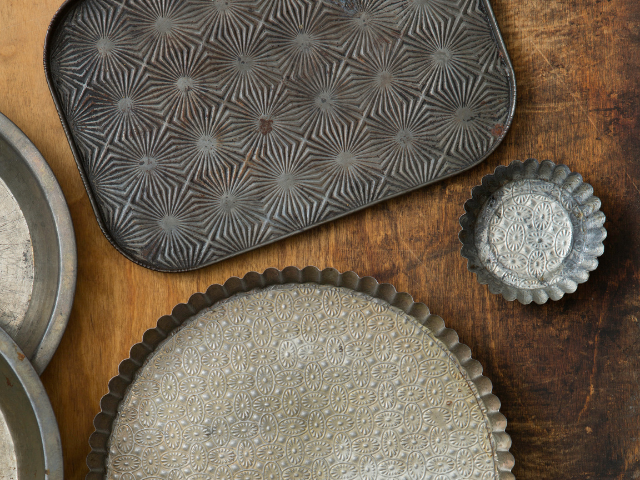
How you store your bakeware can also impact its longevity. Stacking metal bakeware can lead to scratches, while glass bakeware might crack if not stored carefully. Here are some tips for storing different types of bakeware:
- Metal bakeware: If you must stack them, place a paper towel or cloth between each item to prevent scratches.
- Glass bakeware: Avoid placing heavy items on top of glass bakeware to prevent accidental breakage.
- Silicone bakeware: Silicone molds can be stored, rolled up, or stacked without much risk of damage. Just make sure they aren’t squished under heavy items.
6. Season Your Bakeware When Needed
Certain types of bakeware, like cast iron or carbon steel, must be seasoned periodically. Seasoning involves coating the pan with oil and heating it to create a natural, non-stick surface. This not only prevents food from sticking but also helps protect the pan from rust.
If your bakeware requires seasoning, follow the manufacturer’s guidelines to keep it in peak condition.
7. Inspect for Damage Regularly
Even with careful use, bakeware can develop cracks, rust spots, or warping over time. Regularly inspect your bakeware for signs of wear and damage. If you notice any serious issues, it may be time to replace the item to ensure your baking continues to be safe and efficient.
8. Avoid Sudden Temperature Changes
An essential bakeware maintenance tip is to avoid sudden temperature changes, which can cause warping or cracking. For example, never place a hot baking sheet under cold water, as the rapid change in temperature can weaken the material.
Let your bakeware cool down naturally before cleaning or storing it.
9. Oil Your Bakeware
For bakeware without a non-stick coating, lightly oiling the surface before use can prevent food from sticking. This is particularly helpful with metal pans. Just apply oil evenly, and don’t use too much; it can burn and cause a sticky residue.
10. Know When to Replace Your Bakeware
No matter how well you take care of your bakeware, it will eventually wear out. Knowing when to replace a baking sheet, pan, or mold is crucial for performance and safety. If your non-stick pans are scratched beyond repair or your metal bakeware is rusted, it’s time to invest in a new set.
Extend the life of your bakeware with these maintenance tips, and keep baking like a pro!
Looking for more kitchen inspiration? Check out the Best Air Fryer Cookbook for Beginners UK [TOP 7 Reviewed] on Amazon, and explore our other blogs for more helpful cooking tips.
Conclusion
Taking care of your bakeware doesn’t have to be complicated.
Following these simple bakeware maintenance tips ensures your kitchen tools stay in excellent condition for years.
From cleaning to proper storage, these small habits will make a big difference in extending the life of your bakeware and improving your baking results.
Invest in the right bakeware for your kitchen needs and maintain it carefully to continue creating delicious treats without frequently replacing worn-out tools.
Discover the Ultimate Air Fryer Cookbook for Beginners and enjoy a variety of mouthwatering, easy-to-make recipes that fit perfectly into your healthy lifestyle! Plus, don’t forget to check out our recently published articles for more tips, reviews, and air fryer inspiration.




